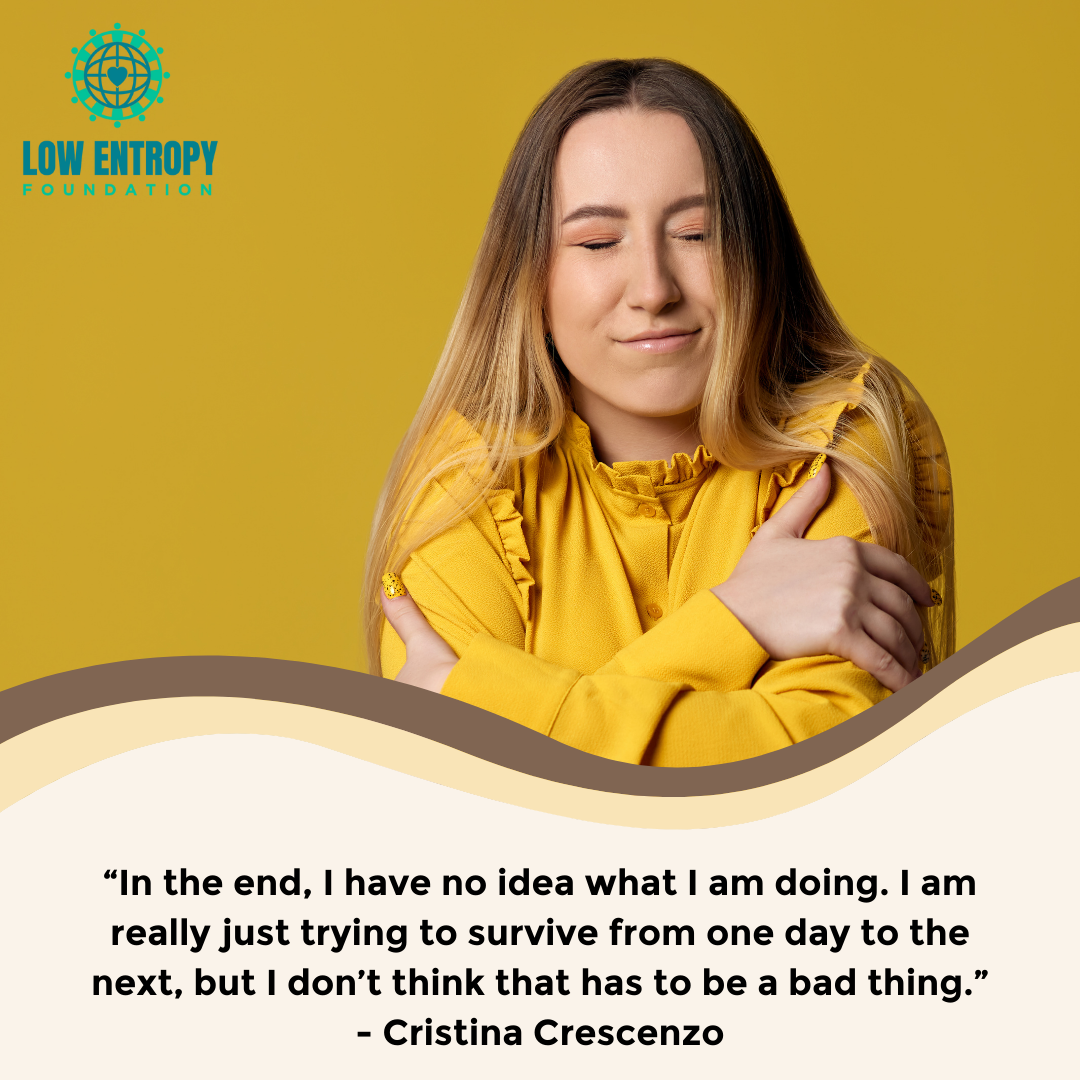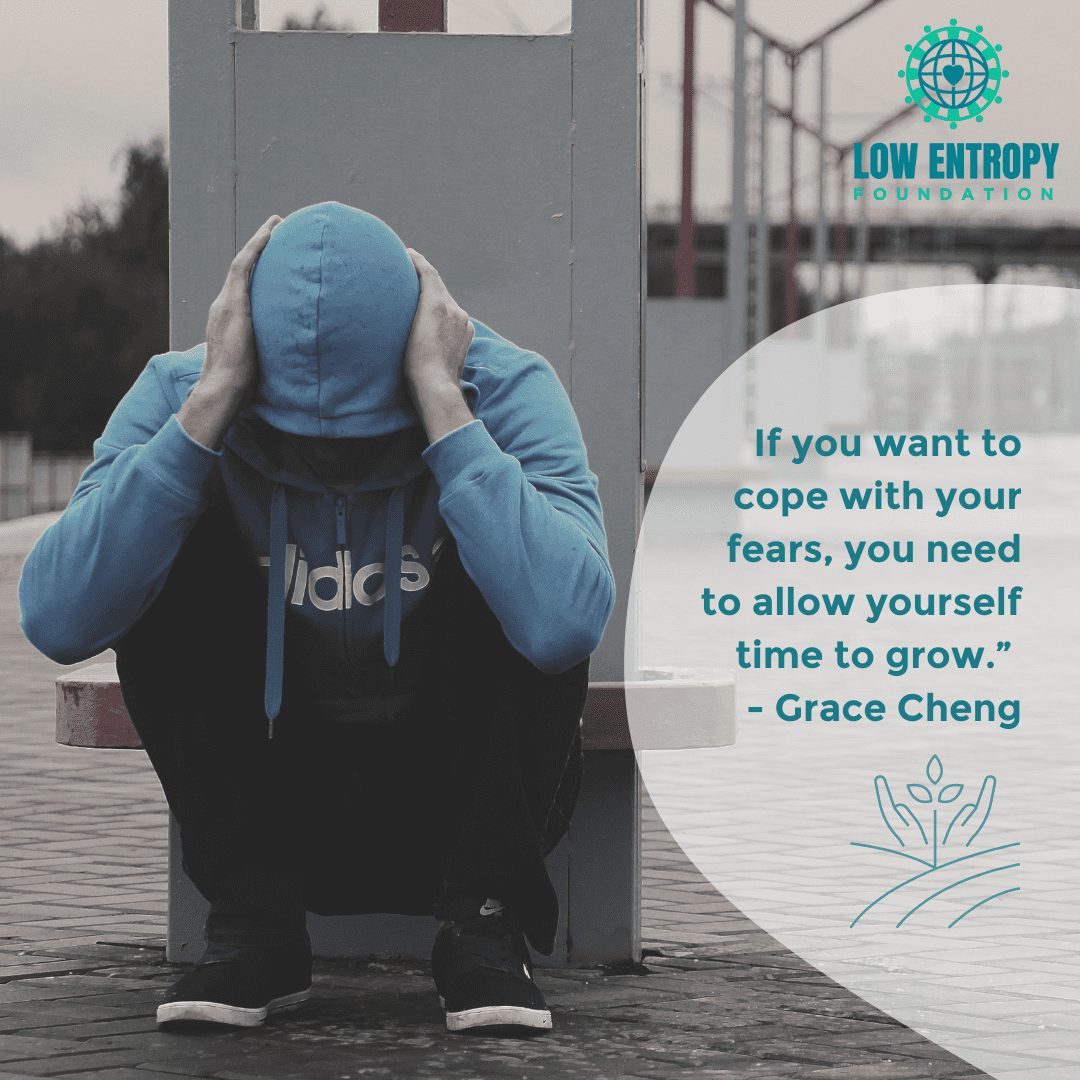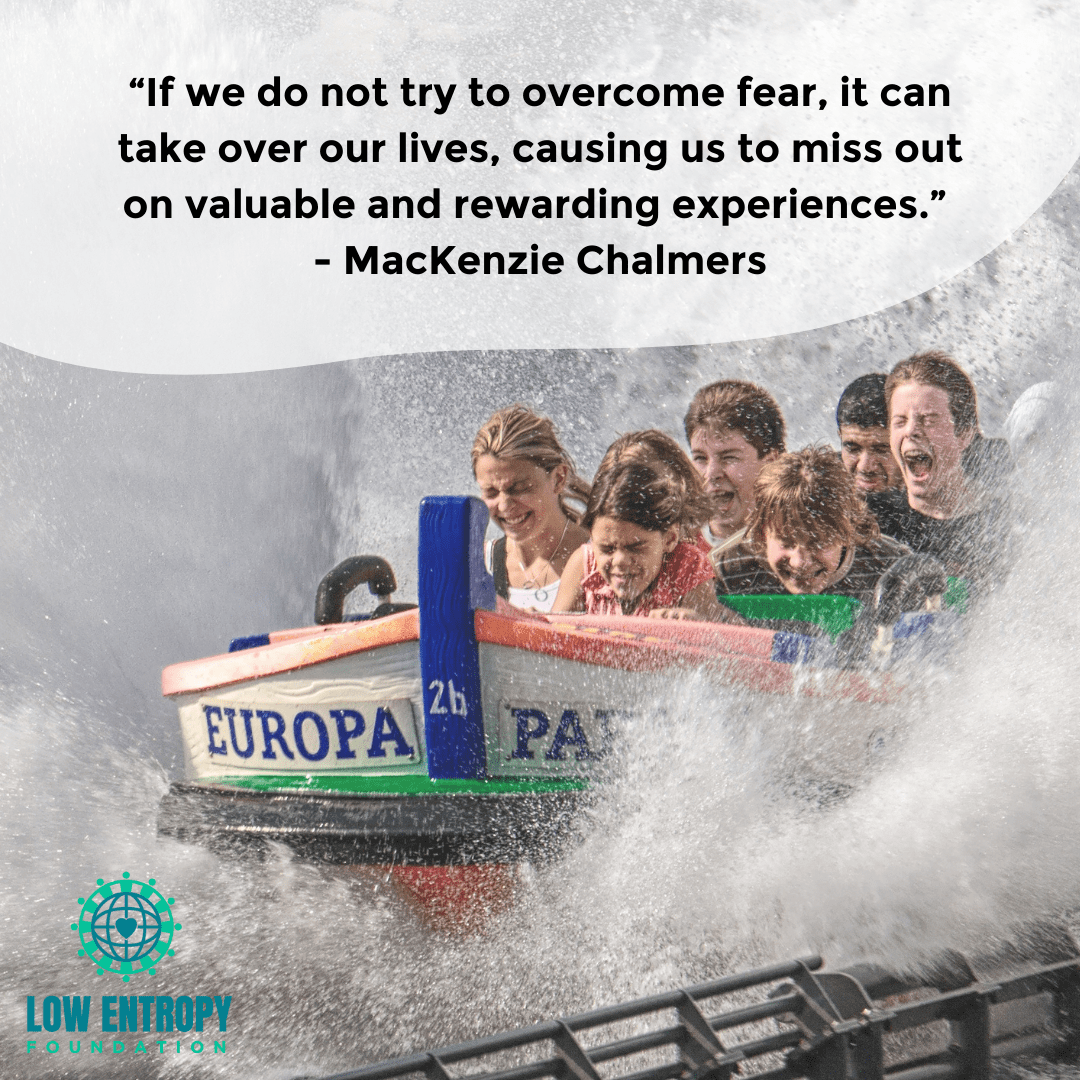Cristina Crescenzo (she/her/hers), Low Entropy Volunteer Writer
I remember one day when I was a little, I walked into the front entrance of my school as the sun was shining behind me, casting my shadow along the carpet. There was a teacher standing by the door, smiling at me as she said, “Cristina, the sun follows you wherever you go.” As a naïve kid, I believed them, so I made it my mission to have the sunniest disposition possible. Unfortunately, as time passed I struggled into adulthood, until one day I turned around and the sun was no longer following me and all I had left was despair.
All I can do in the absence of light is try to sleep the day away, because when I open my eyes all I see is grey. The sun and everything beneath it is artificial and has no real meaning for me anymore. Obviously, I don’t go around stating that fact. I am disillusioned not only with my life but the whole world, so I often wear a manufactured smile and I play pretend the best I can. Moreover, even though I would never want anyone to have to bear witness to this endless spiral, sometimes the mask does slip and the tears start to flow onto the paths of others. Yet, one thing I will say that I have discovered is that everyone deserves to be selfish once and a while and look out for themselves.
I wish I could lie and say I have obtained the tools to help get me out of this sinking pit of hopelessness, but I can’t. However, I can finally start to accept that Little Miss Sunshine isn’t coming back, because I am not a kid anymore, with childish dreams and priorities. I can’t afford to keep stressing myself out searching for the old me, the Cristina that was young, ignorant and had never been hurt, because that’s not realistic. Time has passed and I have learned some hard truths about life that I was sheltered from as a kid, many people also have hurt me and I have even beaten myself up to the point of no return. Hence, I have had a lot of time to contemplate possible ways out of the darkness, but sadly I have come up with nothing concrete to put into action.
But I do have one theory I have ruminated on for awhile. In a nutshell, it’s all about trying to accept who I am today, because whether or not I want to admit it, I am more vulnerable and likely to get sunburned. And, what is wrong with spending my time in the shade while I’m working on it?
In the end, I have no idea what I am doing. I am really just trying to survive from one day to the next, but I don’t think that has to be a bad thing. So, though it can be scary at times, I have to stop being afraid of the dark, because I still have so much time to spare. That is not to say I am going to automatically have a better opinion of the world or myself and that I am not going to enjoy an occasional nap, but I hope if I wait long enough, the sun will return to my side again, brighter than ever.
—
My name is Cristina Crescenzo and I am an English major and aspiring writer just hoping that my words can help someone in some way, and that I can always strive to increase awareness for mental health and the disabled community.









